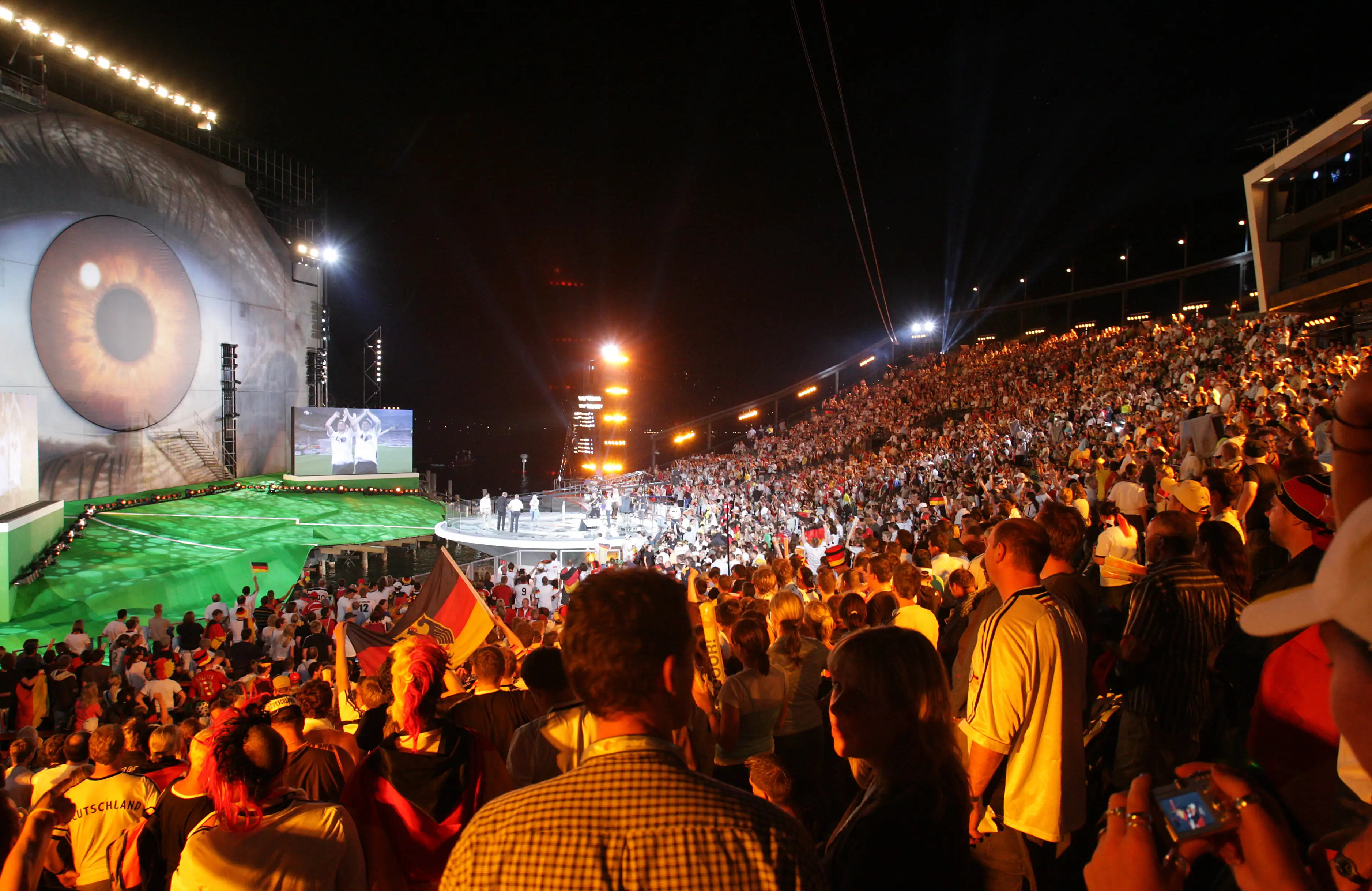A stage with the atmosphere and the technology of grand opera. Plus the daily luxury of picturesque sunsets over Lake Constance. And all of this located at the geographical midpoint between the two host nations, Austria and Switzerland, and the soccer-mad nation Germany. Rarely has a venue been better suited to an event than the Bregenz Festival's lake stage was to the televising of the 2008 European football championships.

It was clear from the outset that this would be a major event with lots at stake. Philipp Köppl, head of event and technical management, remembers a preliminary meeting at the headquarters of the German TV broadcaster to discuss legal matters concerning UEFA. It was held in an enormous conference room with no fewer than 40 chairs arranged in a U-shape.

"In terms of technology, nothing we had experienced before was on the scale of that event," Köppl says. The control centre inside the Festspielhaus had to ensure the smooth functioning of transmission from the beginning to the end of the championships. The television channel broadcasting from the Festspielhaus, Germany's ZDF, transferred a huge amount of its equipment from its Mainz headquarters to Bregenz – cables were laid with a total length of 600 kilometres. Meetings involving dozens of specialists had to be held every day. The Festspielhaus was temporarily repurposed, inside and out, to allow for broadcasting and even playing football – fenced-in pitches and penalty practice areas appeared on the plaza in front of the complex. The ZDF mascot, the Mainzelmännchen, popped up all over the place, and in the Workshop Theatre there was a permanent exhibition entitled "The Miracle of Bregenz". The platform of the lake stage was converted into a TV studio, acquiring that appearance which will probably stick in the minds of ZDF viewers and public viewing audience members for ever.
According to Köppl, the ZDF studio was jocularly referred to as the "Pudding" by Festspielhaus staff. The shimmering light-blue flooring that had been laid out on the platform to give the cameras a smooth ride no doubt contributed to this confectionery impression. Other alterations were made to the Tosca stage set, most conspicuously the blue iris in the Tosca Eye, which was coloured ZDF orange.

Apart from technical and structural aspects, there were other points that had to be considered too. Security, for example, as different regulations apply for sporting events. Special evacuation plans had to be drawn up and security specialists were brought in from Berlin with relevant experience in dealing with crowds of football fans. Philipp Köppl remembers it was enough for these musclemen to plant themselves in the aisles and throw a few surly glances along the rows for the crowd to immediately quieten down.
Köppl feels sure that Kongresskultur Bregenz learned a great deal from the challenges of 2008. Since this coming of age the team has had the self-assurance to take on events of any scale. The highly positive reaction of the ZDF management fully justifies this confidence. And the television host Johannes B. Kerner, who moved to Lake Constance with his family for four weeks, afterwards explicitly thanked Kongresskultur Bregenz and the Festspielhaus. "It was an intense time," Philipp Köppl says. He still remembers the moment at the end of the ZDF news when the announcer said, "And now we go live to Bregenz." "At that moment we knew millions of people were watching us do our work, live!"

Philipp Köppl
At Kongresskultur Bregenz since 1990. He is head of event and technical management as well as project leader for rock and pop events on the lake stage.
(wm)


